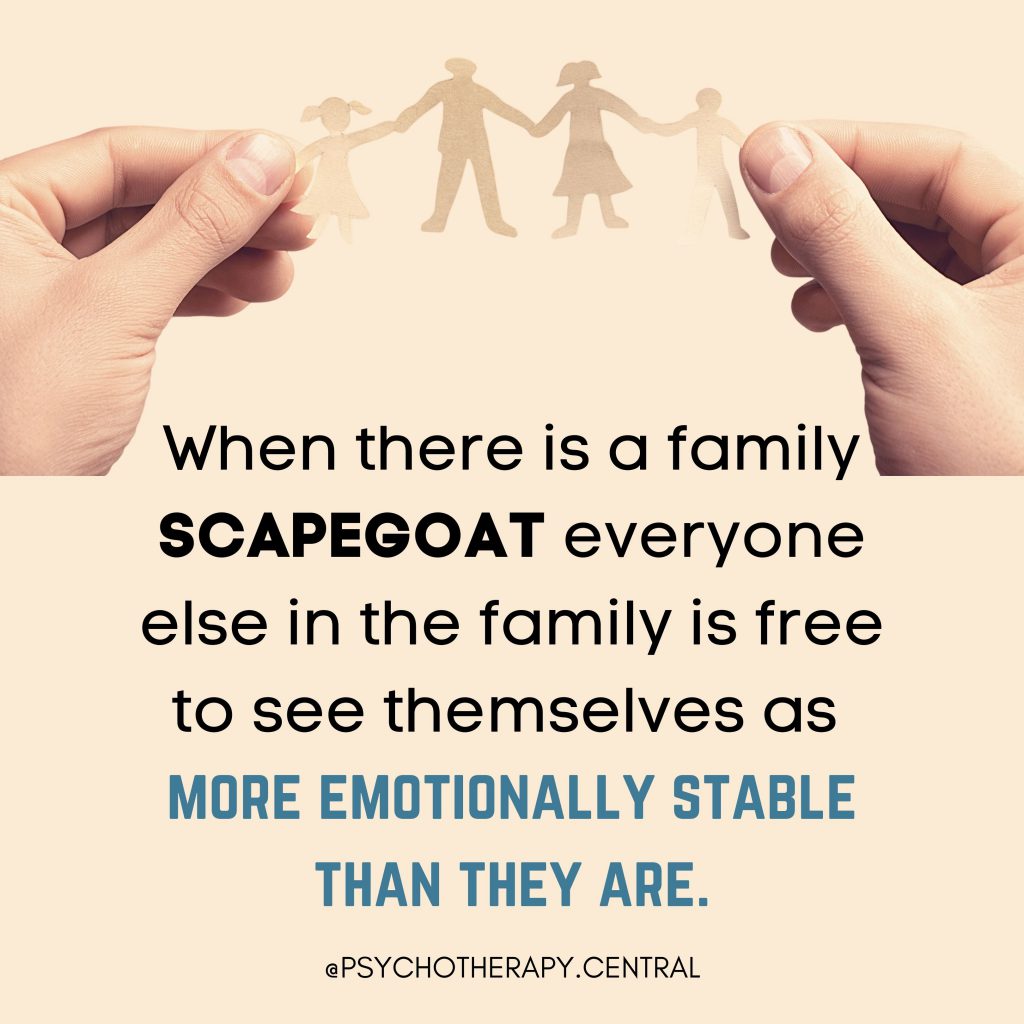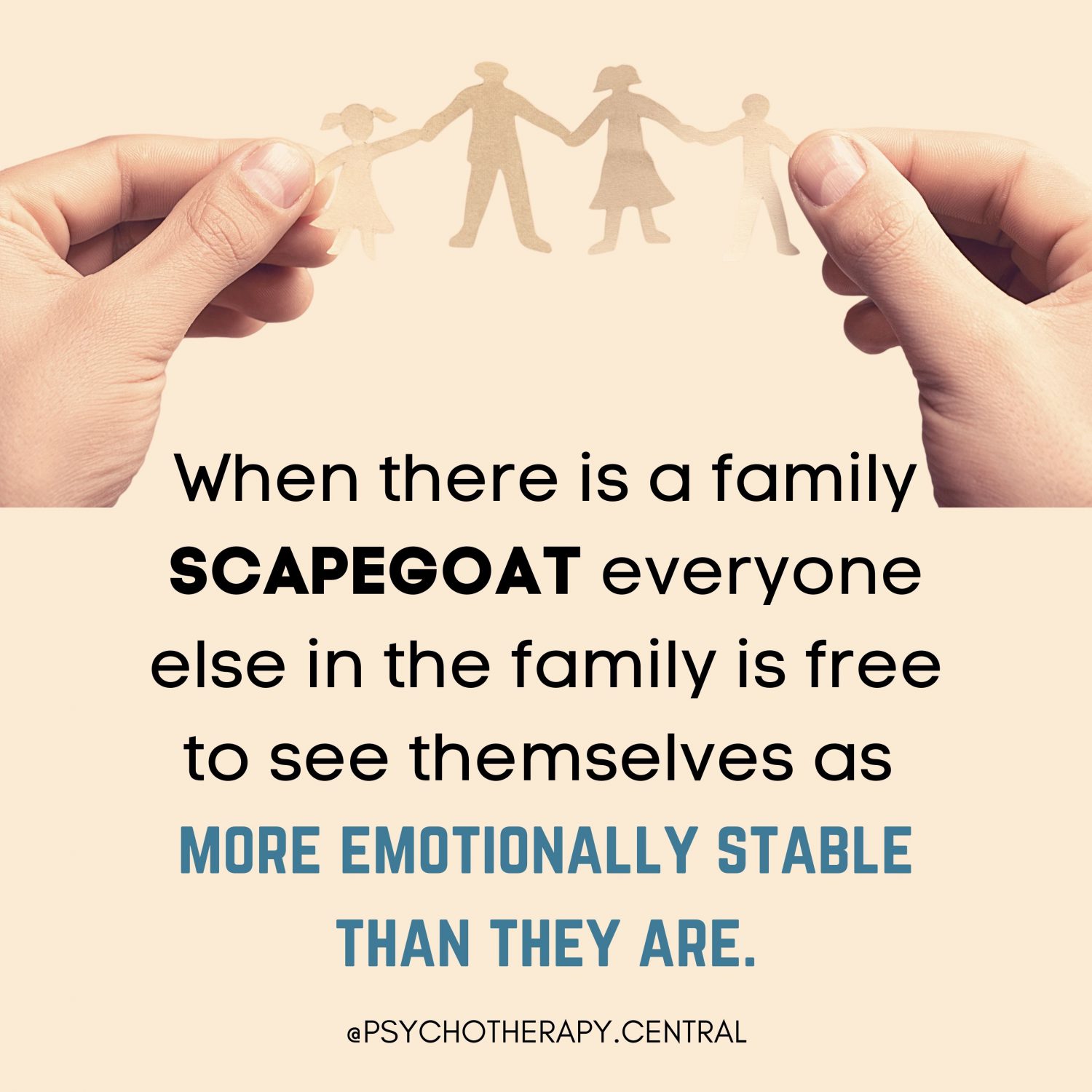When there is a family scapegoat, everyone benefits, except the scapegoat.
With the presence of a designated scapegoat, there may be a lot of hidden dysfunction. It can be much easier to hide an abusive marriage with the presence of a child ‘who has problems’ ‘is always misbehaving’ etc.
No other member of the family is as ‘bad’ or ‘naughty’ as the scapegoat, which creates a kind of comfort for everyone else. As one of the other siblings, you might make a mistake, but it is not as bad as the scapegoat, so will be essentially overlooked.
The person who really suffers from this dynamic is the scapegoat who might experience:
- Feeling like you don’t belong in your family of origin
- Being blamed for everything that goes wrong in the family
- Most family stories centre around your inadequacy
- Being told you are ‘crazy’ if you try to point out other family issues (there is only one – you)
- Self-blame
- Struggle to be assertive
- Feeling you are ‘reactive’ and being told you are ‘too sensitive’
- Be labelled as the ‘volatile’ one
If you know you were scapegoated as a child, know that MANY scapegoats go on to have fulfilling lives in new families. It can be difficult to shift the energy within the family of origin, but with therapy and focus it IS possible.

Reference: Gemmill, G. “The Dynamics of Scapegoating in Small Groups, Small Group Research (November, 1989), vol, 20 (4), pp. 406-418
